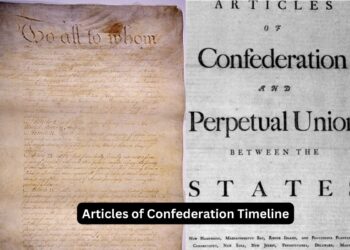Apology for Raymond Sebond Summary and Analysis , Montaigne’s “Apology for Raymond Sebond” is a remarkable essay that reflects on the nature of knowledge, skepticism, and the limitations of human reason. This essay, written in the 16th century by Michel de Montaigne, explores Sebond’s work, a theologian who defended Christian philosophy through reason.
About Writer Michel de Montaigne
Michel de Montaigne (1533–1592) was a French Renaissance philosopher and essayist, renowned for pioneering the essay as a literary form and for his candid exploration of human nature. Born into a wealthy family in Périgord, France, Montaigne received a classical education and later served as a magistrate.
Montaigne was born on February 28, 1533, at the Château de Montaigne in southwestern France. His father, a merchant, infused in him a love for learning, and Montaigne’s early education was overseen by a German tutor, who spoke to him only in Latin. At the age of six, he was sent to study at the Collège de Guyenne in Bordeaux, where he immersed himself in classical literature and philosophy.
After completing his education, Montaigne entered public service and became a magistrate in Bordeaux. However, his tenure in public life was marked by challenges, including political unrest and the Wars of Religion in France. In 1571, he retired from public service to dedicate himself to reading, reflection, and writing.
Apology for Raymond Sebond Summary and Analysis
Montaigne, however, takes a skeptical stance, challenging the idea that human reason can comprehend the vastness of the universe and the mysteries of faith. The following analysis delves into the key themes and arguments presented in Montaigne’s “Apology for Raymond Sebond.”
1. Skepticism and Human Knowledge:
Montaigne begins his essay by expressing skepticism about the reliability of human reason. He questions the arrogance of those who claim absolute knowledge and highlights the limitations of the human intellect. Montaigne argues that our understanding is inherently flawed and finite, unable to grasp the complexities of the world. This skepticism sets the tone for the entire essay, as Montaigne challenges conventional beliefs in pursuit of a more humble and uncertain view of human knowledge.
2. Defense of Sebond’s Theology:
The essay is ostensibly an apology for Raymond Sebond, a theologian whose work Montaigne defends, albeit with a twist. Montaigne employs Sebond’s arguments not as absolute truths but as a means to explore the paradoxes and uncertainties of human knowledge. Sebond’s defense of Christian philosophy is presented as an example of human attempts to rationalize faith, and Montaigne uses it to illustrate the inherent limitations of reason in matters of profound complexity.
3. Nature as a Source of Knowledge:
Montaigne explores the idea that the natural world can serve as a source of knowledge. He suggests that observing nature and its wonders can lead to a more profound understanding of life. This perspective aligns with the Renaissance fascination with the natural world and the burgeoning scientific inquiry of the time. Montaigne contrasts this empirical approach with the limitations of pure reason, emphasizing the value of experiential knowledge over abstract theories.
4. Human Arrogance and Humility:
A central theme in Montaigne’s essay is the humility that comes with recognizing the limitations of human understanding. He criticizes the arrogance of scholars and philosophers who claim to possess absolute knowledge. Montaigne advocates for intellectual humility, acknowledging the vastness of the unknown and embracing the idea that true wisdom lies in understanding the limits of one’s knowledge.
5. The Role of Faith:
While Montaigne explores the limits of reason, he does not dismiss faith entirely. He recognizes the importance of faith in providing a framework for understanding the world, even as he questions the human tendency to rely solely on reason. Montaigne’s nuanced approach to faith reflects his desire to find a balance between reason and spirituality, acknowledging that both play a role in shaping human understanding.
6. Human Inconsistency and Contradiction:
Montaigne’s exploration of human nature involves an examination of human inconsistency and contradiction. He observes that humans often hold conflicting beliefs and behave in ways that defy logic. This acknowledgment of human fallibility contributes to Montaigne’s overall skeptical outlook, as he contends that even the most profound thinkers are subject to the same inconsistencies and uncertainties as everyone else. Apology for Raymond Sebond Summary and Analysis
7. Writing as Self-Exploration:
Montaigne’s essay is a unique blend of philosophical exploration and personal reflection. He uses the essay form as a tool for self-examination, weaving his own experiences and thoughts into the broader discussion of human knowledge. This introspective approach contributes to the essay’s richness, allowing Montaigne to connect philosophical ideas with his own lived experiences. Apology for Raymond Sebond Summary and Analysis
8. Literary Style and Influence:
Montaigne’s writing style is distinctive and influential. The essay is characterized by its conversational tone, frequent digressions, and a lack of a linear structure. Montaigne’s use of anecdotes, quotations, and personal anecdotes adds depth and intimacy to the essay. His innovative approach to the essay form has inspired generations of writers and thinkers, contributing to the development of the essay as a literary genre.
Conclusion:
In conclusion, Montaigne’s “Apology for Raymond Sebond” is a thought-provoking exploration of human knowledge, skepticism, and the interplay between reason and faith. Through a nuanced examination of Sebond’s theology, Montaigne challenges the arrogance of absolute certainty and advocates for a more humble recognition of the limitations of human understanding. The essay’s enduring relevance lies in its exploration of the complexities of human nature and the ongoing tension between reason and faith. Montaigne’s literary style and philosophical insights continue to captivate readers, making “Apology for Raymond Sebond” a timeless and influential work in the history of ideas.
















